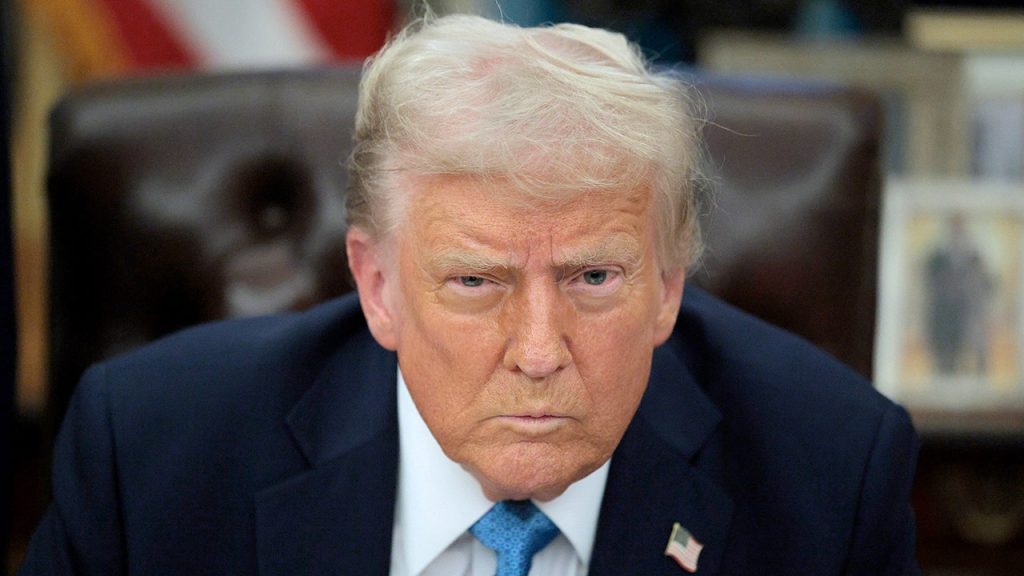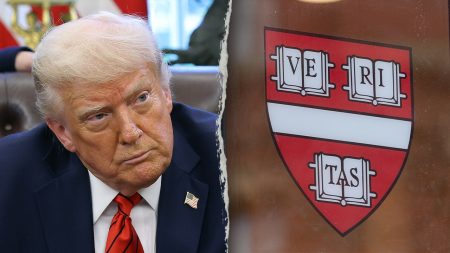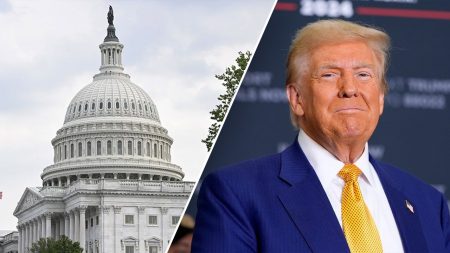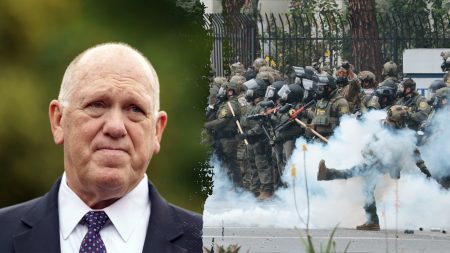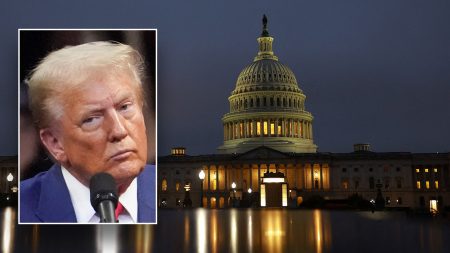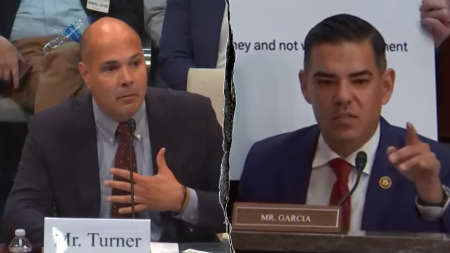During the NFC Championship Game, referee Shawn Hochuli provided a real-time lesson on an obscure NFL rule, threatening the Washington Commanders with an automatic touchdown for repeated penalties at the goal line. Washington linebacker Frankie Luvu twice jumped over the line of scrimmage before the snap, attempting to thwart an anticipated quarterback sneak. Each infraction resulted in the ball being moved closer to the goal line and a new set of downs for the Philadelphia Eagles. After the second penalty, Hochuli warned Luvu that a third such act would draw an unsportsmanlike penalty. While Luvu refrained, defensive tackle Jonathan Allen was flagged for encroachment on the next play. This prompted Hochuli to invoke Rule 12, Section 3, Article 4, which allows the referee to award a touchdown for “palpably unfair acts.” This rule, granting referees significant discretionary power to maintain fair play, has raised questions about similar checks and balances within the political arena, particularly concerning the executive branch’s authority over spending.
The recent actions of the Trump administration, particularly freezing congressionally appropriated funds, have sparked controversy and drawn comparisons to Nixon’s “impoundment” strategy in the 1970s. The Constitution clearly assigns spending authority to Congress, yet the administration’s actions appear to circumvent this principle. The introduction of Elon Musk’s “U.S. DOGE Service” (Department of Government Efficiency), operating under the U.S. Digital Service, has further fueled concerns. While tasked with identifying potential spending cuts, DOGE lacks the constitutional authority to implement them unilaterally, even targeting agencies like USAID for closure. This situation underscores the tension between the executive branch’s desire for efficiency and Congress’s constitutional control over the purse strings.
The administration’s “temporary” freeze on federal grants and loans caused consternation on Capitol Hill, with some Republicans viewing it as standard practice during a new administration while Democrats cried foul, citing potential “irreparable harm” and “catastrophic” consequences. This divide reflects the broader debate about executive power versus congressional authority. A court ruling highlighted the potential for severe damage and reinforced the need for checks and balances. The controversy surrounding USAID’s closure epitomizes this struggle, with Secretary of State Marco Rubio asserting the State Department’s authority over USAID, a move disputed by USAID staff.
The administration’s actions have raised concerns about the balance of power, with Democrats arguing that circumventing congressional spending authority constitutes a “palpably unfair act” akin to the football penalty. They argue that such actions warrant a decisive response from voters, analogous to a referee awarding a score. The situation also highlights the difficulty in addressing such issues in the political realm, where there is no immediate authority like a referee to enforce the rules. Unlike the NFL, the political arena lacks a clear mechanism for immediate redress, leaving voters to ultimately decide the outcome in the next election.
The political fallout from this spending dispute continues to unfold. House Speaker Mike Johnson emphasized the need for savings to offset the cost of renewing Trump tax cuts, while Chairman Sam Graves highlighted the need for program adjustments. These statements reflect the Republican perspective on fiscal responsibility but also raise concerns about potential conflicts with congressional spending authority. With an impending government funding deadline, Republicans may require Democratic support, further complicating the situation. Democrats, wary of ceding spending authority to the executive branch, are less likely to cooperate, potentially leading to a government shutdown.
The erosion of trust between parties exacerbates this conflict, as exemplified by Senator Patty Murray’s concerns about the administration’s potential disregard for negotiated spending agreements. This lack of trust makes finding a bipartisan solution even more challenging. Unlike the clear-cut rules of football, the political landscape lacks a definitive arbiter to resolve such disputes. The ultimate decision rests with the voters, who will have the opportunity to express their opinion in the next election, acting as the final referees in this ongoing contest over constitutional authority. The current situation underscores the importance of upholding the balance of powers and the potential consequences when one branch oversteps its constitutional boundaries.




